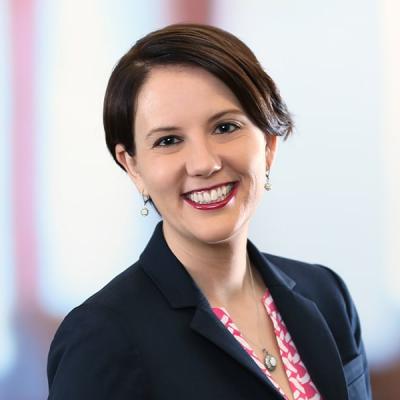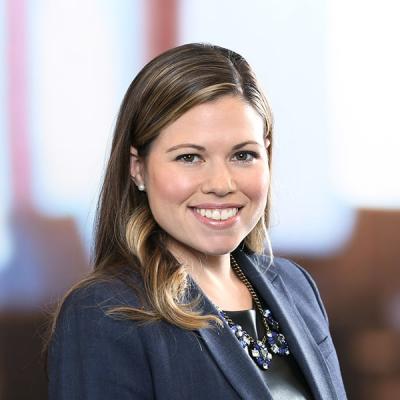Off-Cycle Nursing Facility Revalidations Are Starting: Is Your SNF Ready for the Required Disclosures?
Commencing October 2024, CMS will start off-cycle revalidations of all Skilled Nursing Facilities (SNFs). As part of the revalidation process, SNFs must disclose the additional information required under CMS’ final rule, “Disclosures of Ownership and Additional Disclosable Parties Information for Skilled Nursing Facilities and Nursing Facilities,” which was released November 17, 2023 (“Final SNF Disclosure Rule”). While much of the initial discussion around the Final SNF Disclosure Rule centered on disclosures related to private equity (PE) and real estate investment trust (REIT) ownership, this rule, coupled with CMS’ subsequent Guidance for the SNF Attachment of Form CMS 855A (SNF Guidance), substantially increases disclosure burden across all SNFs. Further, the SNF Guidance and 855A Instructions – especially when compared to the Final SNF Disclosure Rule – introduce inconsistencies, which likely will make this process both burdensome and confusing for SNFs.
This article outlines the disclosure requirements beyond PE and REIT ownership disclosures that will impose a significant burden on SNFs.
Disclosure of Additional Disclosable Parties (ADPs)
In connection with off-cycle revalidations as well as new enrollments and changes of ownership occurring after October 1, 2024, SNFs must disclose “Additional Disclosable Parties” or “ADPs.” CMS defines an ADP as:
Any person or entity who:
Exercises operational, financial, or managerial control over the SNF or a part thereof, or provides policies or procedures for any of the SNF’s operations, or provides financial or cash management services to the SNF;
Leases or subleases real property to the SNF, or owns a whole or part interest equal to or exceeding 5 percent of the total value of such real property; or
Provides management or administrative services, management or clinical consulting services, or accounting or financial services to the facility.
The SNF Guidance provides additional information and examples of ADPs and requires SNFs to cast a wide net in determining which individuals and entities are ADPs. If an entity is an ADP, the SNF must identify it and disclose the ADP’s “organizational structure” and the ADP’s relationship to the SNF.
Below are some of our key takeaways from the definition and examples of ADPs provided by CMS:
At a minimum, all SNFs will likely have to disclose certain positions/individuals required under the Nursing Facility Conditions of Participation. For example, the COPs require a SNF to have a pharmacy consultant, and this person likely meets the definition of an ADP. The COPs also require each SNF to have a governing body, and each of its members will need to be disclosed.
The scope of entities that could provide “financial management,” “financial services,” “accounting services,” or “cash management” is extremely broad. For example, all accounting firms likely would be considered ADPs.
Length of an engagement does not matter; if a consultant provides clinical consulting for a limited amount of time, the consultant technically needs to be disclosed.
The Guidelines provide a specific exception for attorneys, stating that attorneys do not meet the definition of an ADP if they are only providing legal services and thus are not subject to disclosure.
In sum, we anticipate that most SNFs would have to make (and maintain) multiple ADP disclosures given the breadth of the definitions and examples provided by CMS. Further, the SNF must establish processes to obtain the required information from each ADP. Neither will be a simple undertaking.
Given the breadth of this information, it is unclear how CMS plans to use this data and if such broad disclosures allow CMS to meet the purported intent of the Final SNF Disclosure Rule, which is to understand if certain categories of ownership in SNFs result in lower quality care.
New Requirement – Expanded Disclosure of Ownership and Ultimate Parent Company
Historically, Medicare has required all direct and indirect owners that hold more than 5% ownership interest in a SNF to be disclosed. While this requirement technically still applies to SNFs that are corporations, the SNF Guidance introduces key changes of which all SNFs must be aware:
If the SNF is directly owned by an LLC, all members and managers must be disclosed, regardless of their percentage. Currently, there are no exceptions to this requirement, which is an unrealistic expectation. For example, it would be impossible for a SNF that is an LLC but that is ultimately owned by a public company to meet this requirement because the number and nature of owners is constantly changing.
Further, per Section V.C of the SNF Guidance, all SNFs (not just SNFs that are directly owned by LLCs) apparently must submit an organizational chart showing, all direct and indirect owners, regardless of their percentage of ownership. Despite CMS’ assertion in the SNF Guidance that this position reflects “longstanding CMS policy,” CMS has never published any such guidance or policy. Further, CMS has provided no exception to this requirement (e.g., no exception for public companies or companies where this would be an undue burden due to confidentiality or other concerns).
All SNFs must include an organizational chart that includes the ultimate parent company and the entities situated between the SNF and the parent.
The SNF Guidance also provides that each SNF must provide a chart outlining the organizational structures of each of its ADPs that includes a written description of the relationship of each ADP to the SNF and to all the SNF’s other ADPs.
Importantly, the Final SNF Disclosure Rule intimates that LLCs will need to disclose all members and managers, but it does not explicitly require or even imply that all SNFs will need to disclose all indirect and direct owners on an organizational chart (regardless of their legal form) or the “ultimate parent company.” These requirements are expressly stated only in the SNF Guidance.
Requiring submission of such detailed organizational charts is noteworthy because, per the statute, CMS must make SNF ownership information publicly available within a year of the release of the Final SNF Disclosure Rule. In the Final SNF Disclosure Rule, CMS stated that it will release further subregulatory guidance that will address the format of public reporting.
CMS’s No Exception Policy
In the Final SNF Disclosure Rule, CMS is clear that it would not allow exceptions stating, in part:
“Given the importance of the section 1124(c) data, we do not believe any exemptions to its reporting, such as the commenter suggests, should be granted. The information must be disclosed without exception, and this will be demonstrated via the submission of full, complete, and accurate data. Our position is that if a nursing facility wishes to receive Medicare or Medicaid payment, it must comply with all requirements for doing so, one of which is the disclosure of the information in question.”
Final Takeaways
With this construct, including the lack of any exceptions, CMS may have created an unrealistic reporting requirement that imposes significant challenges and reporting burdens on SNFs, and thus may have opened itself up to legal challenges, especially in light of Loper Bright.
Further, while these changes to the SNF disclosure requirements are the result of statutory changes, given the recent uptick in laws focused on private equity ownership, it may be a matter of time before CMS expands similar requirements to other provider and supplier types, such as hospitals and physician practices.

New Year, New Laws: An Overview of New Laws Impacting New York Nursing Homes in January 2022
December 21, 2021| Blog|




